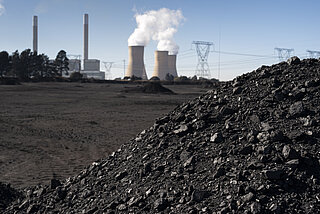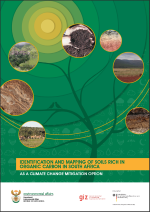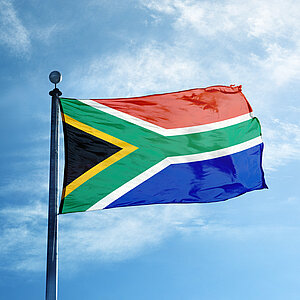Supporting Just Transition through a Green Economy Cluster

South Africa is exploring a just and sustainable transition towards a low-carbon and climate resilient economy and society.
South Africa is exploring a just and sustainable transition towards a low-carbon and climate resilient economy and society. There is an urgent need for South Africa to live up to its international commitments under the Paris Agreement. On one hand, international and national market trends are accelerating the need to phase out coal and to move away from the structural dependency of the South African economy on fossil fuels. While on the other hand, the coal value chain is under enormous pressure with job losses being inevitable. This challenging transition needs to be managed in a just and inclusive way.
This year, all stakeholders in South Africa have embraced Just Transition as defined in the Silesia declaration under the UNFCCC. In 2018/2019, the National Planning Commission worked on a common South African vision for Just Transition which resulted in the draft Vision 2050.
P4C as a hub for Just Transition in South Africa
At the end of 2020, by presidential order South Africa set up the Presidential Climate Change Commission (P4C), which they intend to transform into a statutory body when the Climate Change bill is enacted. The establishment of the P4C emanates from the Presidential Jobs Summit held in October 2018, where social partners agreed on the formation of a statutory body to coordinate and oversee the just transition towards a low-carbon, inclusive, climate change resilient economy and society. The Commission is tasked with advising on South Africa’s climate change response. This includes mitigation and adaptation to climate change and its associated impacts. It will furthermore provide independent monitoring and review of South Africa’s progress in meeting its emissions reduction and adaptation goals. The P4C comprises representatives from government departments and state entities, business organisations, labour, academia, civil society, research institutions and traditional leadership.
In a recent interview, Deputy Chairperson Valli Moosa stated that,
“Just Transition is what’s going to give us the next big spurt of economic growth. The commission is starting to look at how we can move the South African economy from where it is to a low-emissions economy, because we have to. If we don’t we are not going to get the money to develop any other kind of economy, or businesses are going to become uncompetitive.”
IKI supports development of Green Economy Cluster
The Just Transition framework for South Africa is thus under development with various actors supporting it. Germany is among these actors with numerous programmes, focused on the Mpumalanga province, the primary home of South Africa´s fossil fuel energy economy. In Mpumalanga, much of the employment links to mining and power generation from the coal value chain. Besides the current climate change impacts, the region faces a multitude of socio-economic and environmental challenges arising from resource-intensive economic activities, for example, negative impacts on air, soil and water quality leading to negative health impacts that ultimately damage the competitive potential of the area (see also COBENEFITS project).
Among other German programmes in South Africa and specifically Mpumalanga, a strategic intervention for the Green Economy is being implemented under the leadership of the Mpumalanga Department of Economic Development and Tourism (DEDT). This strategy identified the concept and theory of cluster development as an effective way to build an economy that could provide labour absorbing capacity through competitive green jobs.
GreenCape, as the implementing service provider, has started to develop a cluster agency in Mpumalanga enabled through German seed funding, including a contribution by IKIs interface project for South Africa.
The Cluster is an important pillar in the evolving Just Transition process and Germany will continue supporting this work in the coming years through a new bilateral IKI project on Just Transition that is currently under development. The new project was jointly selected by BMU and the South African government during the IKI South African Country Call process. It aims to support establishing framework conditions for key stakeholders from government, private sector, labor and civil society to achieve a just transition in the energy sector on a national, provincial and local level.
The link has been copied to the clipboard
Contact
IKI Office
Zukunft – Umwelt – Gesellschaft (ZUG) gGmbH
Stresemannstraße 69-71
10963 Berlin








